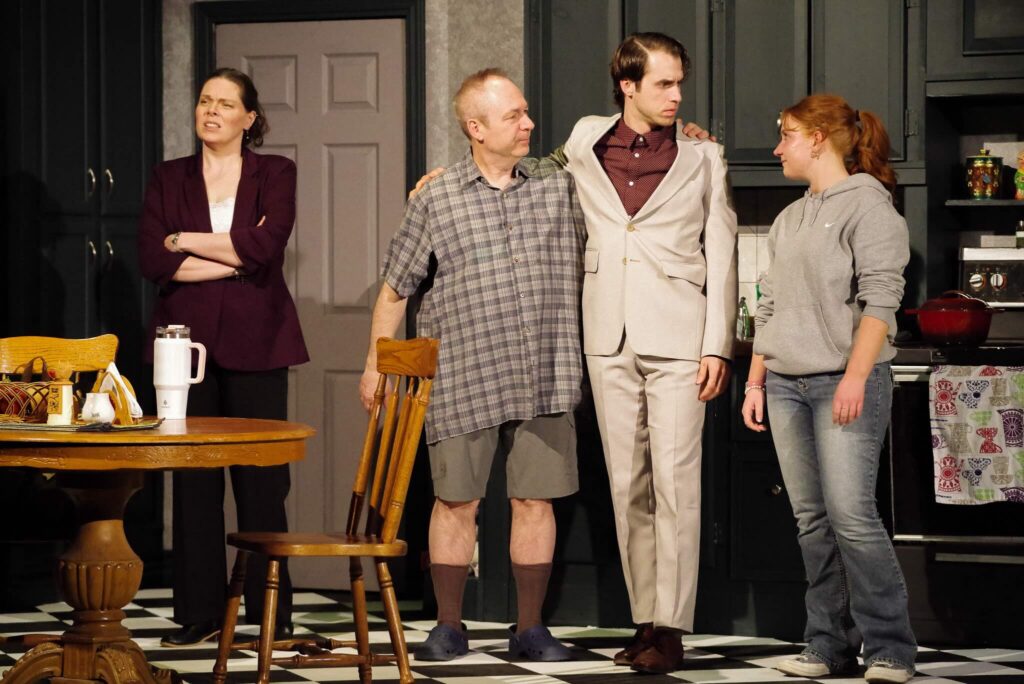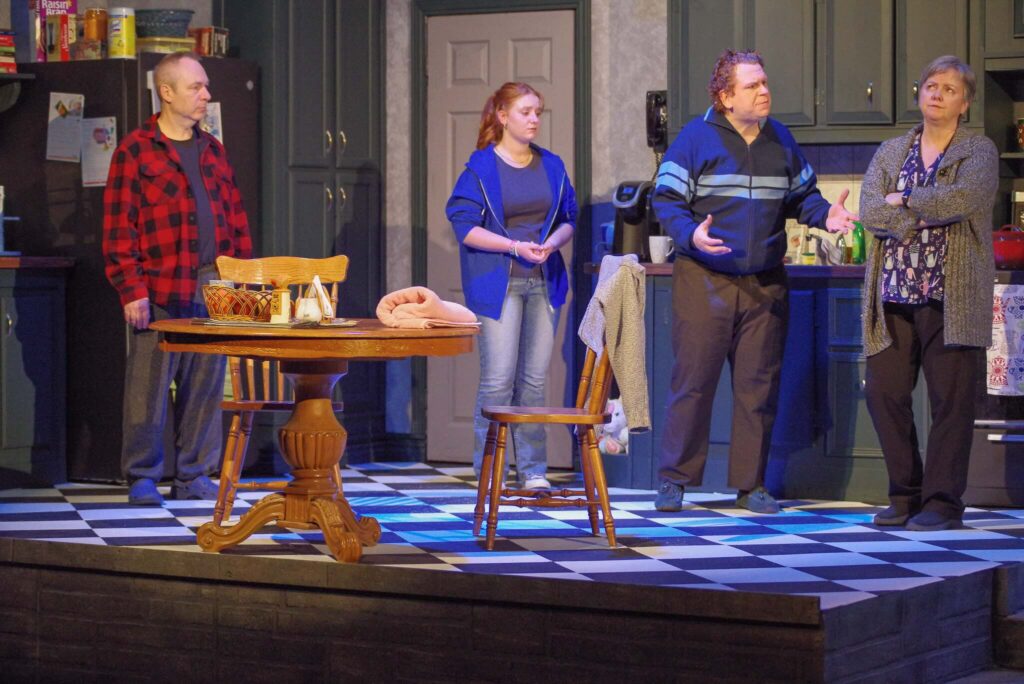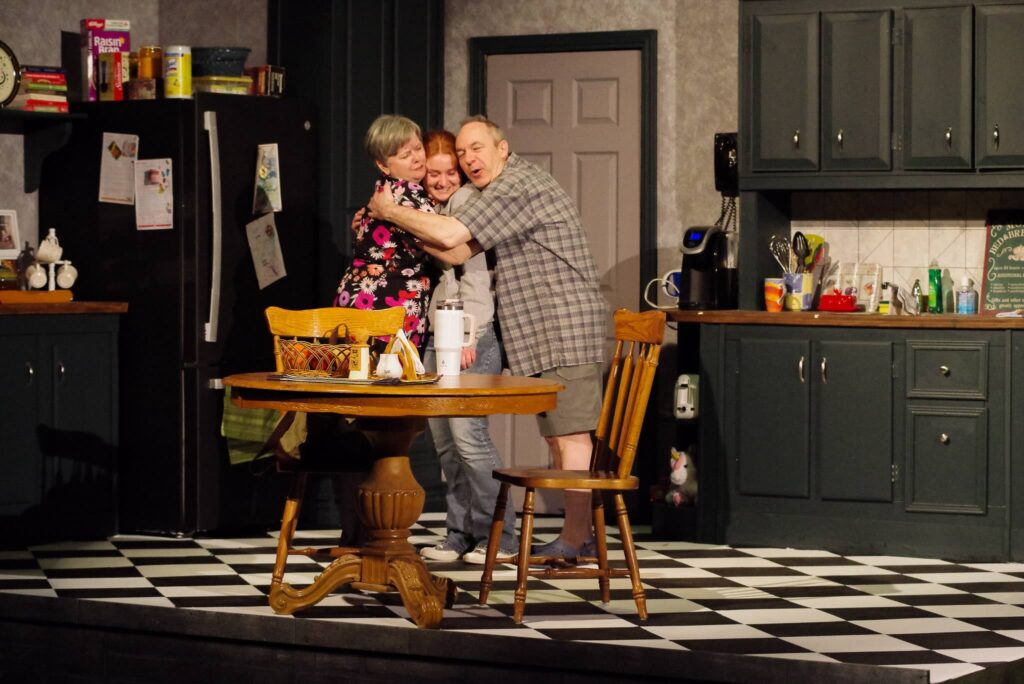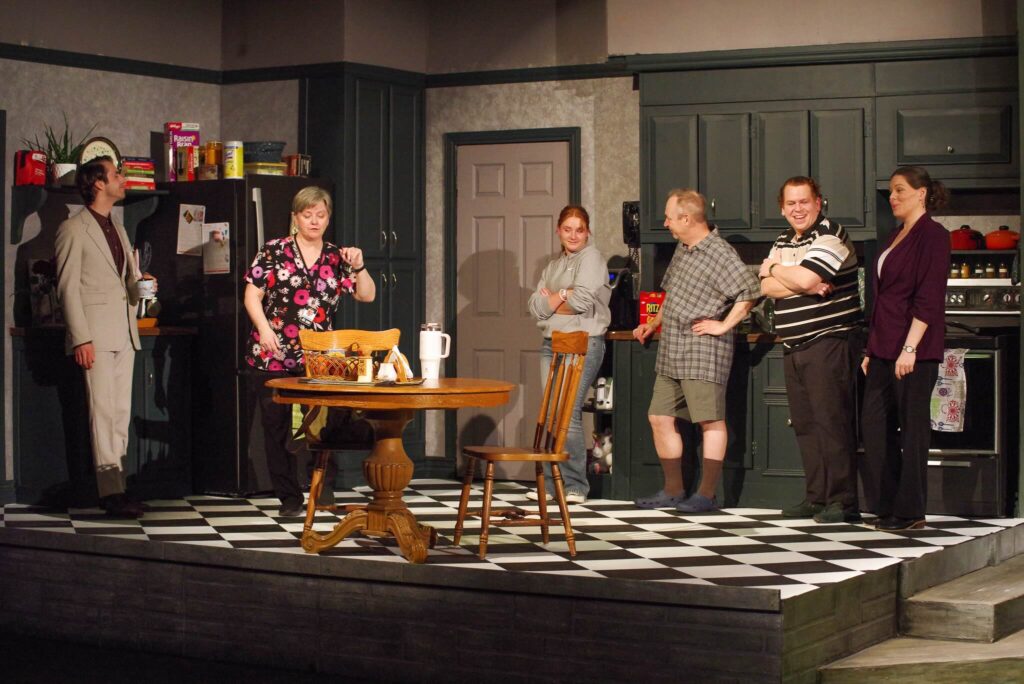REVIEW: Family story is powerful and relatable

Dundas Little Theatre’s Things I Know to Be True delivers impactful and nuanced performances from its cast of six family drama sure to strike a chord with audiences.
The U.K.’s Radio Times once described Things I Know to Be True as an “understated gem.” It’s a perfect phrase for the current production, on stage at Dundas Little Theatre until May 11. The promo poster is simple, featuring six roses, one for each of the characters. There are no pyrotechnics, no dance numbers. It’s a slice-of-life story about a family much like yours or mine, but perhaps it’s that very quality that draws us in so deeply.
Things I Know to Be True (2016) was penned by Australian Andrew Bovell, a multiple award-winning theatre, film and television writer. His other plays include After Dinner, Holy Day, Who's Afraid of the Working Class?, Speaking in Tongues, When the Rain Stops Falling, and The Secret River. Things I Know To Be True premiered in Australia and has also been performed in the U.K., the United States and Spain (in translation). The Canadian premiere of the play was presented by Mirvish and The Company Theatre at CAA Theatre in Toronto in 2023. This means that Dundas Little Theatre has succeeded in being one of the first Canadian community theatres to mount the play. In the original play, the action is set in Adelaide, Australia. Bovell adapted an alternate setting of the play, the one being performed at Dundas Little Theatre, to the midwestern United States.
In the show synopsis, we find out that, “Things I Know to Be True follows the Price family as they navigate a year of trials and tribulations. It’s a story of finding comfort in family and how, though it can be messy, and mistakes will be made, love holds us together.” In his director’s notes, David Faulkner-Rundle discusses the play’s essential message: “The best families, whether we’re born into them, or find, create, and build them ourselves, have a strong, unshakeable foundation of love and care. This foundation helps us to weather the inevitable storm of life and disagreements with each other and to find our way back to those most important to us.”
The DLT cast is composed of Julie Donoahue (Fran), Peter Gruner (Bob), Crystal Rose Haygarth (Pip), Bella Malda (Rosie), Ryan Trepanier (Mark/Mia), David Widder-Varhegyl (Ben).

Fran Price is the matriarch of her family, and the lynchpin that holds Things I Know to Be True together. Fran, in a remarkable and unflinching performance by Donoahue, is a complex, incisive, sometimes uncomfortably direct woman, wife, and mother. Indeed, some would call her overbearing, controlling, and just plain difficult. She knows her husband, and particularly her children, better than they know themselves. No one can escape her razor-sharp assessments and judgements.
It would be easy to see Fran as a bit of a domestic tyrant, the kind of woman who holds her family hostage with an abrasive tongue and even glimpses of violent and irrational tendencies. Donoahue, however, plays Fran as a mature “everymom,” a capable manager, a stoic and unmovable force. It’s clear she’s learned some hard truths over the course of her own life, she is committed above all to her children. If they would only listen to her counsel, things would run a hell of a lot more smoothly.
Gruner capably plays Bob Price, the mild-mannered, affectionate and amiable dad of four. Bob is the peacemaker of the family and a good counterbalance to Fran’s forcefulness. Bob has an appreciation for the simple things in life, his routines, and is easy-going – until he isn’t. At later points in the play, Bob reacts poorly to Mark’s revelations about his gender identity and becomes aggressive in the face of Ben’s misdeeds. After getting to know Bob as the level-headed father who normally de-escalates conflict, this is quite jarring. However, Bovell’s script uncovers the reality that all human beings are complex and sometimes contradictory. Gruner shows great comedic timing and authenticity throughout his performance.

Malda (Rosie), in her first time on the DLT stage, not only holds her own among her castmates but shines as the adored little sister of the family. She capably launches the play with an extended monologue about the struggles, errors and risks in the journey toward finding herself and her true path as a young woman. As conflicts arise between other family members, Rosie is often an observer, sometimes a sidekick. We watch with sympathy as sometimes she is able to intercede but other times has to look on in anguish.
It is hard to believe that this is also Widder-Varhegyl’s first production with Dundas Little Theatre. He has an interesting interplay with the rest of the cast and it’s his moments bantering as a typical, annoying brother to his sister Rosie where he strikes a particularly familiar chord. His portrayal of Ben is zany, physical, and we come to see in Ben some of the consequences of Fran’s overindulgence.
The complex relationship between Fran and daughter Pip (Haygarth) rings true to me as the eldest child of my own mother. Where Fran seems a little looser and more indulgent with Ben and the younger Rosie, Pip chafes against what she perceives is an unachievable standard held for her by her mother. As a wife and mother, Pip is searching for a path for herself that lends her some measure of happiness and identity. She has a laundry list of grievances from times Fran has been particularly heavy-handed and judgemental, and Pip and Fran struggle to find common ground. The moment when we see Fran break down in tears reading the vulnerable letter from Pip feels authentic; sometimes mothers and daughters struggle to communicate even when (especially when) they have similarities.

When Mark (played by Trepanier) reveals that he is transgender and will be transitioning to live as Mia, her authentic self, she is tremulous yet resolute. The news comes as a shock to the rest of the family; although there were a few clues Mark had been repressing his feelings even (especially) among the people he loved best. Trepanier beautifully communicates both the fear of rejection and the resolve to live authentically, even if that means breaking from his birth family and building his own. There is something also very true-to-life in Bovell’s script in that Mia’s emergence is not the Price family’s only focus at the time. Life is messy and busy and complicated, and we don’t have the freedom to deal with single issues before new ones are added to the pile.
As This I Know to Be True comes to its devastating climax, it does so quietly, almost wordlessly. Despite this and because of this, it is emotionally affecting and powerful. Expect to have tears in your eyes and a catch in your throat. Hats off to the director, cast and crew on a very realistic and moving year in the life of a family just like ours or one we most certainly know.
Bravo.

NEED TO KNOW
Continues May 9 & 10, 8 p.m. and May 11, 2 p.m.
Garstin Centre for the Arts, Dundas Little Theatre
37 Market St. S., Dundas
Tickets here
(905) 627-5266












